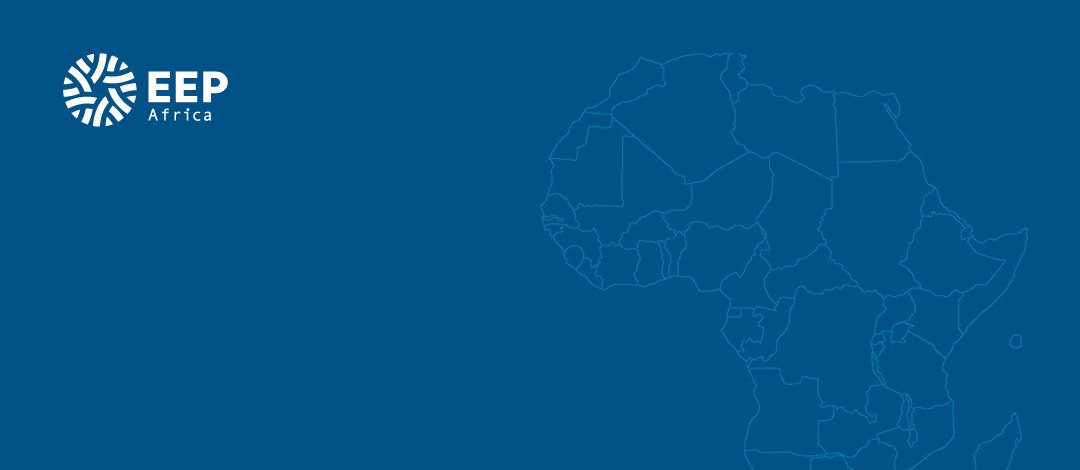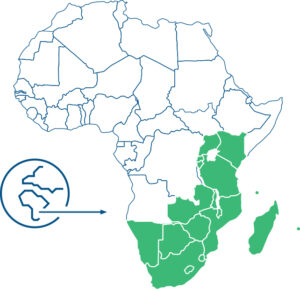
For the recently launched EEP Africa Call for Proposals 2024, applicants conducting projects in Comoros, Madagascar, and Mauritius are eligible to apply.
On 23 January 2024, the EEP Africa Supervisory Board, composed of representatives from each of the seven donors, voted to expand the geographic scope for the 2024 Call for Proposals. The Call was launched on Monday, 19 February and will be open through midday Friday, 15 March.
Iceland welcomes the expansion of EEP Africa to Comoros, Madagascar, and Mauritius. Energy access and private sector engagement is of fundamental importance to our common success in eradicating energy poverty and at the same time supporting the development of distributed energy services in the seventeen eligible partner countries. - Benedikt Höskuldsson, Special Envoy for Climate, Ministry for Foreign Affairs of Iceland
The last such expansion was in 2018 when Malawi and Zimbabwe were added to the country scope. During the first Call for Proposals, when EEP Africa began as a programme run by the Ministry for Foreign Affairs of Finland in 2010, projects from just eight countries were eligible for funding (Botswana, Kenya, Mozambique, Namibia, South Africa, Swaziland, Tanzania, Zambia).
We’re delighted that new funders have joined EEP Africa and the available funds have increased in the past few years. This has allowed the fund to expand and serve clean energy companies in more countries in Southern and Eastern Africa. For this year’s funding round, three new island states have been included in Southern Africa. We hope that there will be many good applications coming from these three new countries in the Call for Proposals that is now open. -Marko Saarinen, Senior Specialist, Development Policy at Ministry for Foreign Affairs of Finland
The move will allow companies which are conducting projects in Comoros, Madagascar, and Mauritius to submit expressions of interest for EEP Africa grant and repayable grant financing. Comoros is a Least Developed Country (LDC) which has one of the highest electricity costs in Africa and is very much fossil fuel dependent, despite potential for renewable energy. Madagascar is also an LDC, with a very low rate of access to electricity, high costs and share of fossil fuels in the electricity mix. The inclusion of Mauritius has the potential to boost development of scalable clean energy innovations for Mauritius in addressing its dependence on imported fossils fuels, and for African markets as a whole. The total list of eligible countries now totals 17, as Seychelles has been removed due to no longer being eligible for ODA (official development assistance) funding as of 2018.
The Austrian Development Agency supports the expansion of EEP Africa to Madagascar and the islands of Mauritius and Comoros. As we witness the escalating effects of climate change, it is becoming increasingly evident that promoting renewable energy and energy efficiency initiatives is crucial to ensure a future for all. This is even more important in Small Island Developing States as they are disproportionately affected by the consequences of global warming. -Friedrich Stift, Managing Director of the Austrian Development Agency (ADA), the operational unit of Austrian Development Cooperation
Besides this shift in geographic scope, the mandate and call process of EEP Africa remains largely the same. The focus of EEP Africa continues to be supporting early-stage and locally driven innovative clean energy projects in active development. EEP Africa aims to have a diverse portfolio of projects across countries and technologies, as well as the types of companies it supports. There is no one theme for the call, but instead priorities are highlighted, such as: Gender & Youth, Circular economy & Productive uses of energy, Climate change adaptation & resilience, and Leave no one behind. The fund is technology agnostic, welcoming all solutions based on renewable energy sources or energy efficiency.
The current list of countries where operations are eligible for EEP Africa financing includes Botswana, Burundi, Comoros, Eswatini, Kenya, Lesotho, Madagascar, Malawi, Mauritius, Mozambique, Namibia, Rwanda, South Africa, Tanzania, Uganda, Zambia, and Zimbabwe.
More information on eligibility can be found here.

Map of the updated geographic scope.
The Energy and Environment Partnership Trust Fund (EEP Africa) is a clean energy financing facility hosted and managed by the Nordic Development Fund (NDF) with funding from Austria, Denmark, Finland, Iceland, NDF, Norway and Switzerland. EEP Africa provides risk tolerant early-stage grant financing for locally driven innovative clean energy projects and businesses in Southern and Eastern Africa. Since 2010, EEP Africa has committed more than EUR 60 million to over 270 pioneering projects, creating over 11,600 jobs, improving energy access for more than 5 million people, and avoiding 1.8 million tonnes of CO2e.


